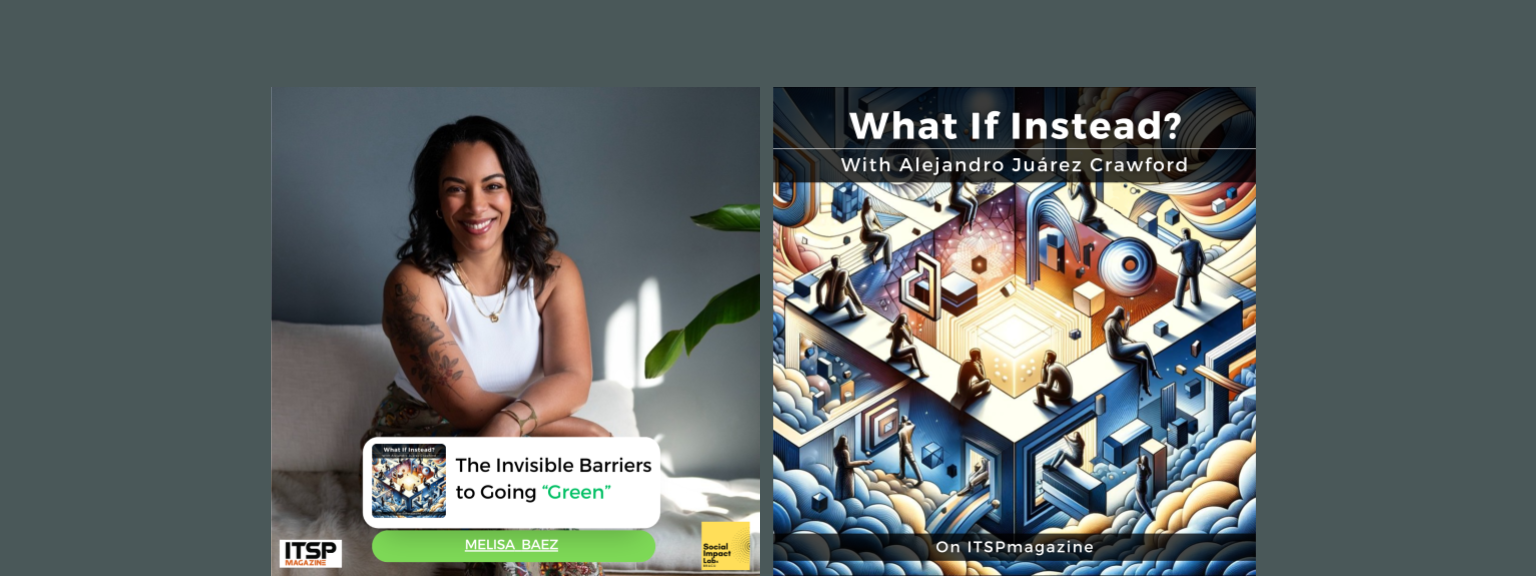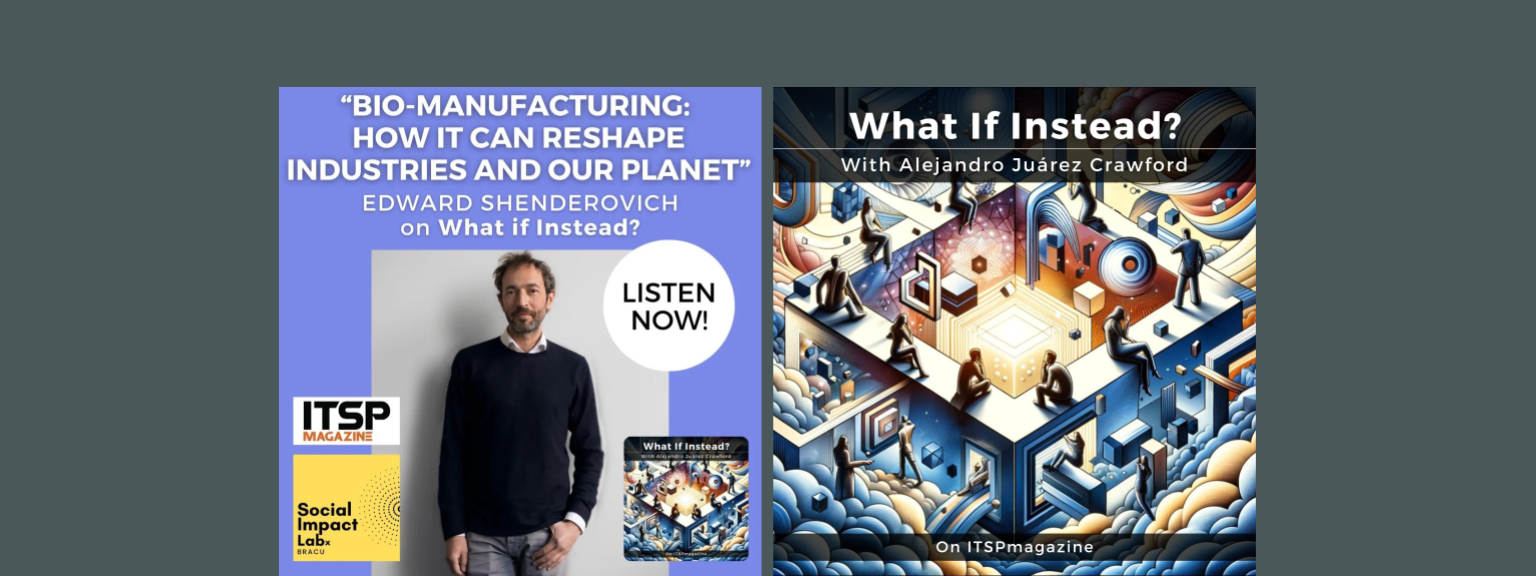The Invisible Barriers to Going “Green”
In the new episode of “What if Instead?,” cohosts Alejandro Juárez Crawford and Mim Plavin-Masterman welcome Melisa Baez, co-founder and CEO of Elume, a company dedicated to helping small businesses integrate sustainable practices into their core operations. She tackles the significant barrier the terminology we use poses in promoting sustainability, especially in conservative communities, emphasizing that while the community shares the values of sustainability, the language often alienates them. (Quotations have been lightly edited for ease of reading and can be heard in the original here):
When you start using the technical jargon of sustainability in the community that I live in, people tend to disassociate and disengage, creating barriers in communication.They don’t relate to that language, and yet the values were there, right?
She emphasizes that contrary to what some might think, sustainability strongly aligns with many of the values of people running small and medium enterprises in Lancaster, Pennsylvania, her hometown and the birthplace of Elume. But to get anywhere the framing needs to change. People believe in sustainability, but there are many barriers. The foundations of sustainability in business often come from a scientific context, and the language doesn’t always make it easily adoptable into traditional business practices. This, Baez says, can form an unnecessary obstacle for business people who might otherwise make the transition to sustainability. This creates a significant barrier, especially for mom-and-pop shops, small enterprises, and locally owned businesses. Baez points out that while the desire for sustainability often aligns with the core values of business owners, language and political polarization often obscure this intent. When you take out the technical jargon of sustainability as it exists, people fundamentally care about the well-being of society and solving problems. The values and mindsets are there. What creates tension is much of the language, influenced by our current political landscape, which makes it more challenging. Her experiences across a range of cultural contexts, including Oaxaca and the Dominican Republic, reveal a common thread of values concerning environmental stewardship, even if the business practices lag behind. Baez highlights the gap she observed and the opportunity it presents. When I studied in Oaxaca and the Dominican Republic, I observed the deep cultural values and expectations around how we should treat the land, the people, and the water. The belief in sustainability was strong, but the business side—the ability to maximize the power of the business structure—was less emphasized. This gap presented an opportunity for us. This insight led her to create a journaling experience for innovators, entrepreneurs, and changemakers allowing them to explore their purposes privately and at their own pace. This method aims to foster a safe and personal environment for self-reflection. We created this journaling experience with the belief that this change needs to first root from purpose and alignment of values to business, for people to be able to write down their ideas… It allows them to do it at their own pace. This can open up a crucial process of exploration. Baez explains how Elume works to make sustainability culturally accessible and dispel the notion that it is a niche or elitist endeavor. Once we break down these invisible layers, it could be so cool – where it’s not a second thought! What if instead of the way things are today, sustainability became natural for small businesses? Baez won’t be done until sustainability is the norm, not some specialized form of business. The way it’s done, so “people feel that it’s okay to just do business in this way.” Tune into the episode to find out how. The Invisible Barriers to Going “Green” | A conversation with Melisa Báez | What If Instead? Podcast with Alejandro Juárez Crawford and Miriam Plavin-MastermanWhat if Instead? is produced by Srijan Banik and the team at Social Impact Lab at BRAC University, which Banik founded. Cohosts Mim and Alejandro’s One Size Fits None: Time for an Entrepreneurial Revolution, is forthcoming from Emerald Publishing in Summer 2025


